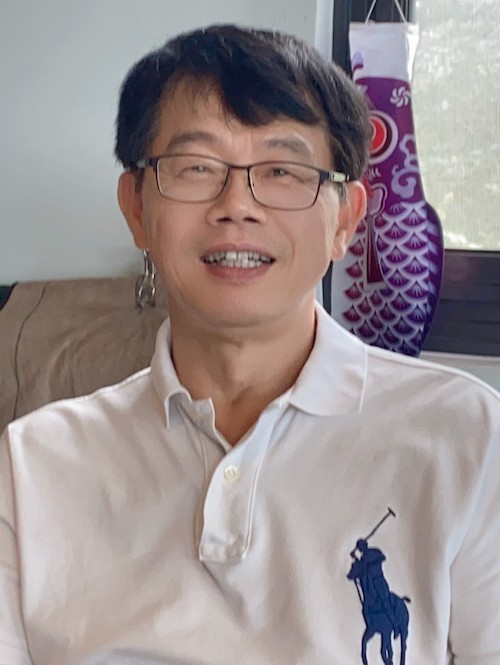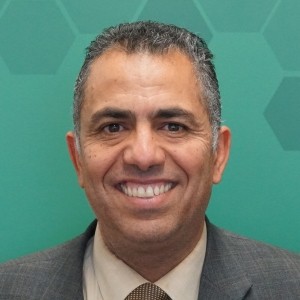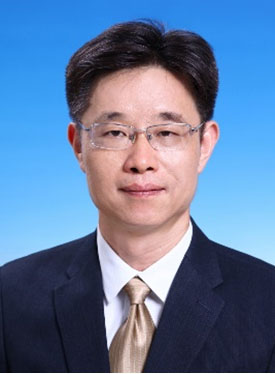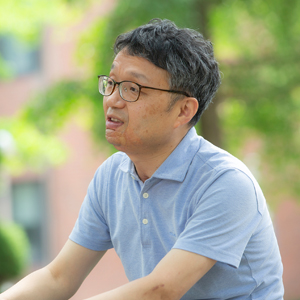Prof. Cheng-Di Dong
Chair Professor, Department of Marine Environmental Engineering, National Kaohsiung University of Science and TechnologyInternational Honorary Member of American Academy of Environmental Engineering and Science
Speech Title:
Biography: Prof. Cheng-Di Dong is a Chair Professor in the Department of Marine Environmental Engineering, National Kaohsiung University of Science and Technology (NKUST), Taiwan. Dr. Dong obtained his Ph.D. in Environmental Engineering from the University of Delaware, USA in 1993 and M.S. in Environmental Science from New Jersey Institute of Technology, USA in 1990. Dr. Dong is Dean of the College of Hydrosphere of NKUST. Dr. Dong’s research focuses on waste-to-resources, biotechnology, nanotechnology, novel catalytic materials and biochar for environmental applications. Dr. Dong has published more than 500 research and review articles in leading international journals, 7 book chapters, and edited 6 special issues of scientific journals. His h-index ~66 and more than 17000 citation according to Google Scholar Citation. He has won several scientific awards and grants from renowned academic bodies. Dr. Dong was in the “World’s Top 2% Scientist-Stanford University Releases List (2020, 2021, 2022, 2023)” for Environmental Sciences. He is a Fellow of International Bioprocessing Association. Dr. Dong currently serves as Editor of Sustainable Environment Research, and he is Editorial Board Member of Bioresource Technology. He has also served as Guest Editor of Special Issues in Bioresource Technology, Environmental Pollution, Bioresource Technology Report, Catalysts, and Applied Sciences.
Prof. Mohamed Gamal El-Din
Ph.D., P.Eng., FCSCE, FASCEProfessor, Canada Research Chair (Tier 1) in Sustainable and Resilient Wastewater Treatment for Reuse
NSERC Senior Industrial Research Chair in Oil Sands Tailings Water Treatment
Senior University of Alberta Engineering Research (UAER) Chair in Wastewater Management Towards Circular Economy
Director of Water Research Centre, University of Alberta
Theme Co-Lead, Resilient Reclaimed Land and Water Systems, Future Energy Systems
Research Chair in Environmental Engineering, Tongji University
Speech Title: Application of Surface Microlenses in Solar-Driven Photolysis and Photocatalytic Degradation of Micropollutants
Abstract: The removal of emerging micropollutants via solar-driven photodegradation processes represents an environmentally sustainable approach for water and wastewater treatment. However, its efficiency is often limited by the low intensity and low photon energy of solar irradiation in aquatic environments. To overcome these limitations, Microlenses (MLs) technology is been proposed as a promising strategy to improve photocatalyst performance by optimizing solar light distribution and increasing light intensity within photochemical reactors. In this study, surface MLs were fabricated on photoreactors of various geometries using a solvent exchange process (SEP)-assisted method to enhance photodegradation efficiency. Two types of MLs systems were investigated: polymer MLs and photocatalytic-functionalized MLs systems. Polymer MLs, including random MLs, ML arrays, and flexible concave MLs, demonstrated enhanced performance in various water matrices, attributed to their light-focusing and redistribution capabilities. Moreover, immobilized photocatalytic-functionalized MLs, Ag/ZnO nanorods, were successfully fabricated on the photoreactor, exhibiting robust photocatalytic activity, good stability, and operational reusability. These features position them as promising candidates for wastewater treatment, by effectively addressing the practical limitations associated with suspended photocatalysts. These MLs-based materials demonstrated efficient photodegradation of organic micropollutants (dyes, pharmaceuticals, and pesticides) and industrial contaminants, including naphthenic acids derived from the oil and gas industry, using a sustainable solar-driven approach with a low-energy, low-carbon, and high-efficiency strategy for water treatment.
Biography: Dr. Mohamed Gamal El-Din is a Professor in the Department of Civil and Environmental Engineering at the University of Alberta. His research focuses on innovative treatment approaches for municipal and industrial wastewater, including oil and gas. Since 2011, he has held an NSERC Senior Industrial Research Chair in Oil Sands Tailings Water Treatment and is also a Theme Lead for the Future Energy Systems (FES) theme on Resilient Reclaimed Land and Water Systems. In 2017, Dr. Gamal El-Din was awarded the Alberta Science and Technology Leadership (ASTech) Foundation Award for Innovation in Oil Sands Research. He is a Jinshan Distinguished Professor at Jiangsu University and was awarded the Research Chair in Environmental Engineering at Tongji University in China in 2020. In 2023, he was appointed the Canada Research Chair (Tier 1) in Sustainable and Resilient Wastewater Treatment for Reuse. That same year, he was also named the University of Alberta Engineering Research Chair in Community-Based Wastewater Management, with a focus on advancing the circular economy. Since May 2023, Dr. Gamal El-Din has served as Director of the Water Research Centre (WRC), and he currently holds the Senior University of Alberta Engineering Research (UAER) Chair in Wastewater Management. In 2024, Dr. Gamal El-Din was awarded the Albert E. Berry Medal by the Canadian Society for Civil Engineering (CSCE) for outstanding contributions to the field of environmental engineering in Canada and the Killam Award for Excellence in Mentoring. Dr. Gamal El-Din's commitment to education and research is unparalleled. Over the course of two decades, he has supervised a diverse group of 210 graduate students, research assistants, postdoctoral fellows, and research associates. Under his mentorship, these individuals have grown into accomplished professionals who are making significant contributions to their respective fields. Dr. Gamal El-Din is also a prolific researcher, with an extensive body of work that includes 360 peer-reviewed journal papers and 450 conference and workshop presentations, among other publications. His contributions to the field have been widely recognized, as evidenced by his impressive h-index of 75, and over 20,000 citations as per Google Scholar.
Prof. Zhimin Qiang
School of Environmental Science and Engineering, Shanghai Jiao Tong UniversitySpeech Title:
Biography: Dr. Zhimin Qiang is a distinguished professor at the School of Environmental Science & Engineering, Shanghai Jiao Tong University. He was a recipient of the National Science Fund for Distinguished Young Scholars, and had served as the director of Drinking Water Science and Technology of Chinese Academy of Sciences, and the director of Sate Key Laboratory of Environmental Aquatic Chemistry of China. His research covers advanced treatment, green disinfection, and safe distribution of water and wastewater. Prof. Qiang has led over 40 research projects, published about 250 SCI papers (H index = 62) and 120 Chinese papers, and been recognized as a Highly Cited Researcher by Elsevier in China. He holds 20 innovation patents and has received 8 national/provincial honors and awards.
Prof. Hyunook Kim
Department of Environmental Engineering, University of SeoulSpeech Title:
Biography: Dr. Hyunook Kim is Professor at Environmental Engineering, University of Seoul, Korea, and Director of R&D Center of Core Technologies for Water Treatment. Professor Kim earned his B.S. degree in Environmental Science from Yonsei University, Korea in 1994, and an M.S. degree in Environmental Engineering from Johns Hopkins University in 1997, and a Ph.D. from University of Maryland at College Park in 2000. Before he joined the faculty member at University of Seoul in 2002, he worked as Environmental Engineer for US Dept. of Agriculture, MD, USA. Professor Kim’s research in the area of water pollution control includes a number of projects on process control and operation of water and wastewater treatment plants. Especially he is interested in monitoring and control of contaminants of emerging concern. He has published numerous journal papers and made conference presentations. He has been received a few awards for his academic and research achievements.




